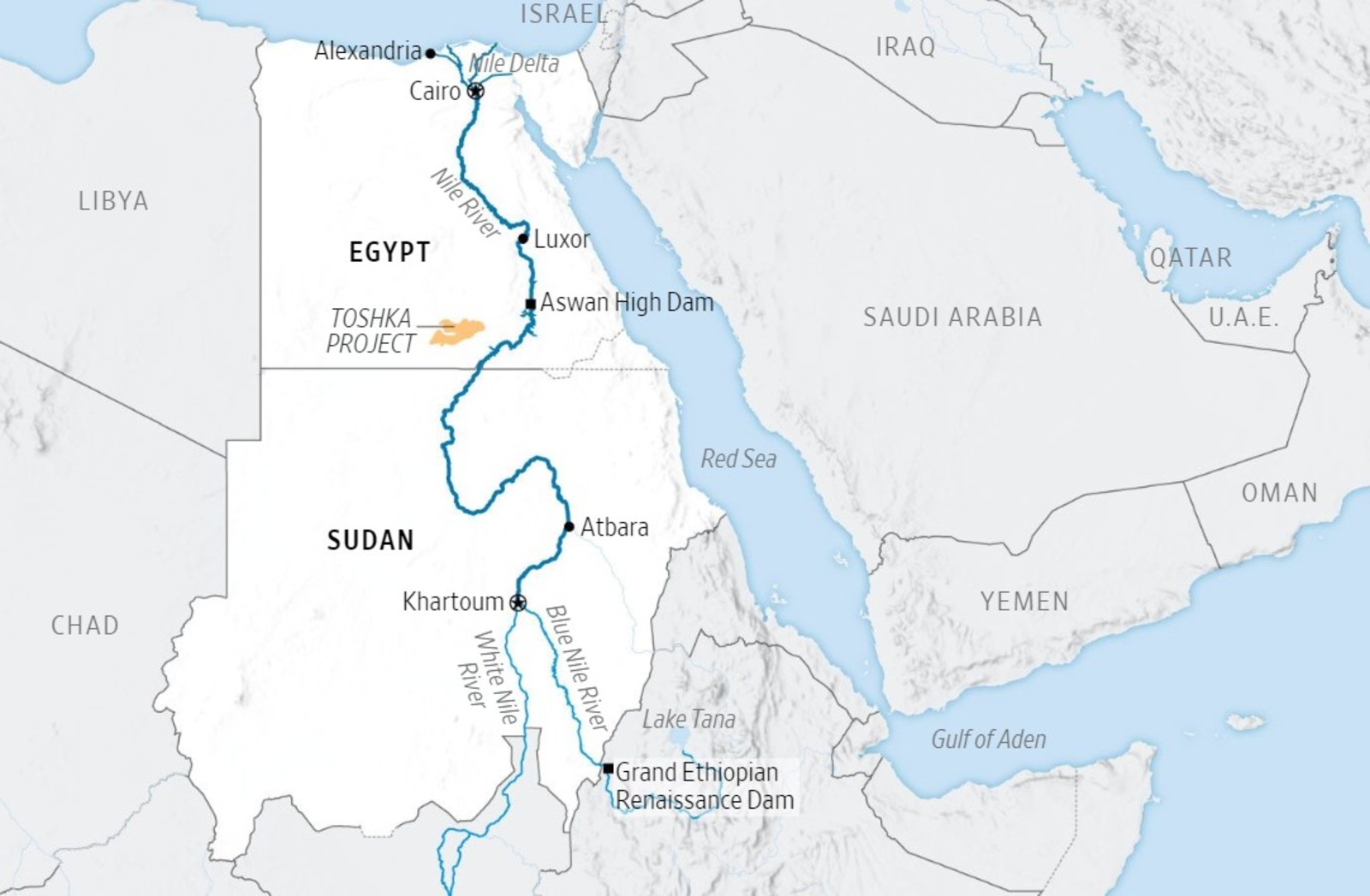The battle for Nile water is intensifying, and wealthy states are the beneficiaries

The battle for Nile water is intensifying: Egypt and Sudan may have access to the Nile and plenty of land for farming, but we’re not the greater beneficiaries of these resources, Justin Scheck and Scott Patterson write in the Wall Street Journal. While Egypt and Sudan both face potentially catastrophic water shortages, exacerbated by soaring population growth (which in Egypt is forecast to grow 20% to 120 mn by 2030, and to 150 mn by 2050), countries including Saudi Arabia and the UAE have made substantial investments in their arable land, where they grow crops for export. In Egypt, these countries hold some 383,000 acres of land, the article states, used to grow a variety of crops, which are then exported back to the Gulf. Both Egypt and Sudan, meanwhile, are big food importers.
In a resource-hungry world, food and water are power: Egypt is now looking for new places to grow food, with a program having been launched in 2015 to expand arable land by over 1.5 mn acres, in which companies from Saudi and the UAE have reportedly bid for land. The owner of one Saudi agricultural company, who is looking at buying farms in Egypt and Sudan says, “When you talk about buying land, you’re not really buying land. You’re buying water.” This is important both to ensure food supplies, and as a means of building regional influence during a time of increasingly scarce resources.
And the pressure keeps growing: Both the availability and quality of Nile water are impacted by developments that include pollution, droughts, industrial farming, the Aswan High Dam, and now the construction of the USD 4.2 bn Grand Ethiopian Renaissance Dam (GERD), which has been heavily financed by China. Egypt uses some 85% of its fresh water for agriculture, with 90% of that water coming from the Nile, but access is increasingly restricted. In the Delta, many small farmers complain that the water is either too scarce or too polluted for them to grow their crops.